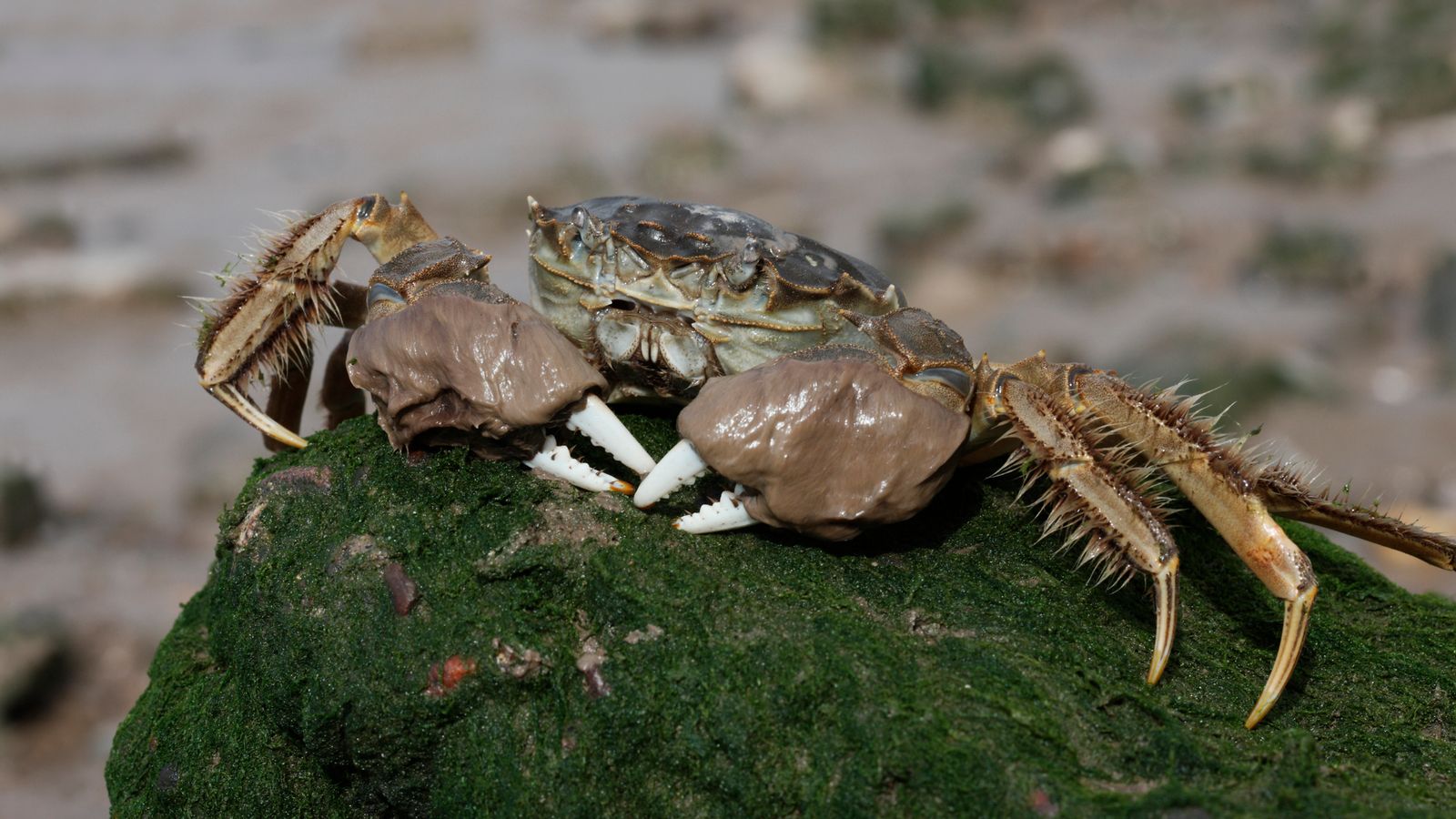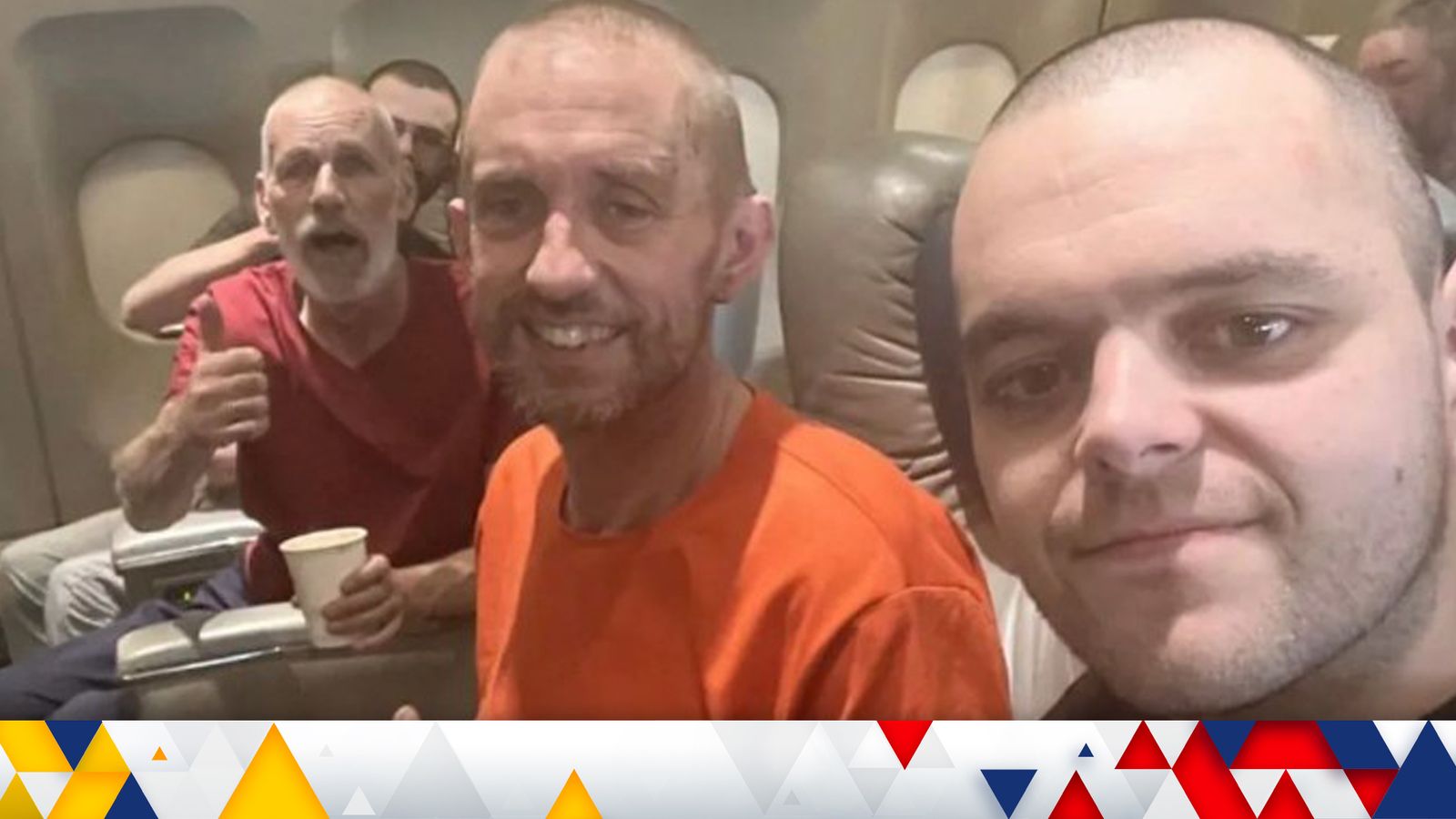British intelligence officials have confirmed reports that the so-called Butcher of Syria has been put in charge of the Russian war in Ukraine.
General Aleksandr Dvornikov, 60, has been responsible for brutal military operations in Chechnya, Syria and Ukraine itself.
As one of Vladimir Putin’s most trusted allies, he was awarded the highest honour of Hero of the Russian Federation by the Russian president in March 2016.
Mariupol to fall ‘within hours’ – follow Ukraine updates live
Like he did in Syria in 2015, Mr Putin has turned to General Dvornikov in recent weeks in a desperate effort to regain dominance in Ukraine as it became clear the Russian advance had stalled.
The UK Ministry of Defence describes his appointment as an “attempt to centralise command and control”.
After Russian troops suffered huge losses and were forced to abandon any attempt at capturing Kyiv, the president hopes his commander can be more successful in his new focus on the Donbas region.
Here Sky News looks at Gen Dvornikov’s reputation and what his appointment means for the next phase of the Ukrainian conflict.
Soviet army from 17
Born in Russia’s far east near the border with China, Aleksandr Dvornikov graduated from his local military training school in Ussuriysk in 1978 at the age of 17.
After joining the Soviet army as a teenager, he underwent more advanced training at the Moscow High Command training school and became a platoon commander in 1982.
During his early years he served in the Far Eastern Military District, securing roles as company commander and battalion chief of staff, before moving to East Germany to serve as deputy battalion commander there.
By the late 1990s he had been awarded an “order of military merit” and the “order of courage”.
In 1997 he was made commander of the motor rifle division that in 1999 stormed Grozny, the capital of Russia’s self-proclaimed independent province of Chechnya, during the Second Chechen War.
Gen Dvornikov’s reputation as a “butcher” dates from his time there.
In Grozny he is believed to have ordered infantry troops to shoot at everyone – civilians and the military – while using illegal cluster bombs and cruise missiles to effectively flatten the city.
It eventually fell on 6 February 2000, which helped Putin, acting president at the time, shoot up in the polls and become Russian leader permanently a month later.
‘Worst of the worst’
After stints around various parts of Russia, including Siberia, Gen Dvornikov continued to rise up the ranks, becoming lieutenant general at the end of 2012 and colonel general two years later.
When, in 2015, Russian-backed Syrian government forces were on the brink of losing the civil war, Mr Putin put Gen Dvornikov in charge of Russian forces there.
He focused in on the opposition stronghold of Aleppo in a battle that eventually resulted in the deaths of around 50,000 Syrians.
In an article in a Russian military journal in 2018, Gen Dvornikov described employing “constant fire… day and night… without a break”.
Retired US Navy Admiral James Stavridis described him as the “worst of the worst”, who used chemical weapons such as sarin to choke civilians to death and unrelenting airstrikes to destroy homes and hospitals.
“He is the goon called in by Vladimir Putin to flatten cities like Aleppo in Syria,” he told NBC News.
“He has used tools of terrorism throughout that period, including working with the Syrian forces, torture centres, systematic rape, nerve agents. He is the worst of the worst.”
In October 2016, UN High Commissioner for Human Rights Zeid Ra’ad al Hussein said Aleppo was turned into a “slaughterhouse” and “a gruesome locus of pain and fear, where the lifeless bodies of small children are trapped under streets of rubble and pregnant women deliberately bombed”.
As head of the Russian military in Syria, Gen Dvornikov employed similar tactics in Holms, where tens of thousands more were killed and buildings flattened.
By mid-2015 they meant the Russians could ensure President Bashar al-Assad was back in control.
Gen Dvornikov wrote in 2018: “By the summer of 2015, the Syrian armed forces had completely exhausted themselves, the personnel were demoralised, the officer corps was degrading, and the leadership of the armed forces showed extremely low efficiency in command control.”
Head of operations in Crimea and Donbas
Although he has only just been charged with the war in Ukraine as a whole, Gen Dvornikov has been involved in the region since 2016.
Two years after the Russians invaded Crimea in 2014, Mr Putin made him commander of its Southern Military District.
In that role he has overseen the Russian-backed separatist war against Ukrainians in Crimea and the Donbas region, which have collectively resulted in around 13,000 deaths.
Read more:
What we can expect from Russia’s new commander in charge of invasion
He masterminded the 2019 operation to blockade and seize three Ukrainian navy ships and 24 sailors on board in the Sea of Azov around Crimea.
The sailors were kept hostage in Russia for around 10 months, prompting the EU to sanction the general and many of his colleagues that year.
He also commandeered the build-up of Russian military forces around the Ukrainian border in 2021, which served as the first indication the Kremlin was planning to go to war.
What does Dvornikov mean for the war?
The MoD says the Kremlin’s decision to promote Gen Dvornikov is the result of its “inability to cohere and coordinate military activity”, which has “hampered Russia’s invasion to date”.
Speaking to Sky News, Mr Putin’s spokesman Dmitry Peskov was forced to admitted “significant losses of troops”, which in the last week have forced Russia to withdraw from the north of the country completely.
Before Moscow gave up on capturing Kyiv, Russian troops were organised into three separate groups focusing on the north, south and east of Ukraine.
This meant there were “essentially three competing field commanders”, Mark Galeotti, a senior associate fellow at defence think tank RUSI and the author of We Need To Talk About Putin, told NBC News.
“Promoting General Dvornikov is part of a wider overhaul in which Russia will stop trying to fight on three fronts and instead focus on “another offensive to try to take the rest of the Donbas”, he said, describing it as a “more sensible and achievable objective”.
Gen Dvornikov is not an “accidental choice”, Viktorija Starych-Samuoliene, co-founder of the Council on Geostrategy, tells Sky News.
“In Russia he’s well known for being one of the leading candidates to become the next Chief of General Staff.”
His tactics in Syria, which aimed to “cow the population”, are now being played out in the southern Ukrainian port city of Mariupol, she added.
“The appointment of General Dvornikov is significant primarily in two respects,” she said.
“Firstly, it indicates a new phase of the war in Ukraine with a primary aim to efficiently and successfully take and hold the portions of Ukraine’s Donbas region still under Ukrainian control at any price.
“Secondly, due to his horrific ‘track-record’ in Syria, it potentially signals even more brutality against civilians, critical infrastructure and disregard for the laws of war.”








